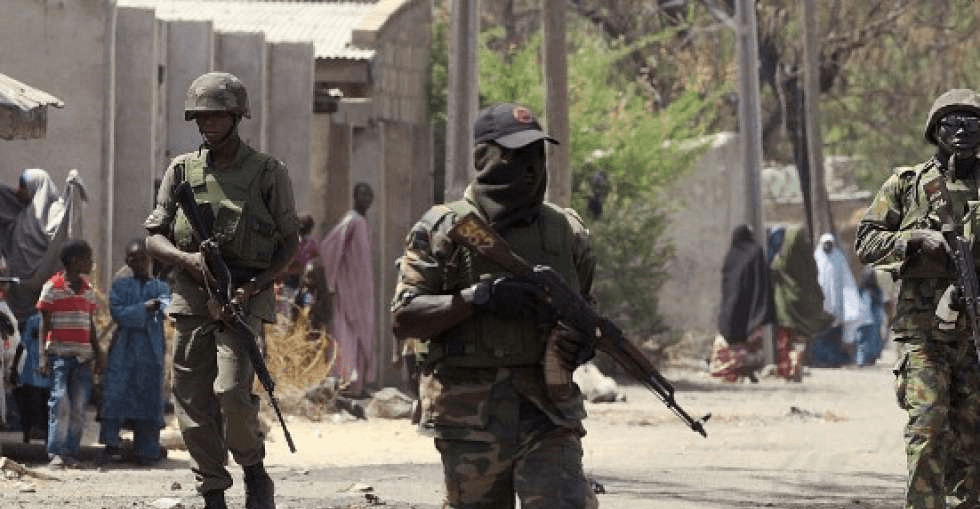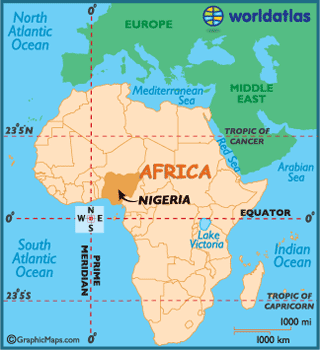Boko Haram’s effect on Nigeria
April 9, 2018 | Expert Insights

igerian authorities have announced that the military has rescued 149 women and children who had been kidnapped by the terror outfit Boko Haram.
The terror organization has carried out a number of attacks in the region and orchestrated large-scale kidnappings of young children, especially women.
Background
Founded in 2002, Boko Haram is a Jihadist militant organization based in Northeastern Nigeria, also active in Chad, Niger and northern Cameroon. The group was founded by Mohammed Yusuf and has been led by Abubakar Shekau since 2009. For a brief period between 2015 and 2016, the group had also pledged its allegiance with ISIS. The militant Islamist group has caused havoc in Africa’s most populous country through a wave of bombings, assassinations and abductions.
Boko Haram promotes a version of Islam which makes it “haram”, or forbidden, for Muslims to take part in any political or social activity associated with Western society. This includes voting in elections, wearing shirts and trousers or receiving a secular education. Boko Haram regards the Nigerian state as being run by non-believers, regardless of whether the president is Muslim or not, – and it has extended its military campaign by targeting neighbouring states.
In 2009, Boko Haram carried out a spate of attacks on police stations and other government buildings in Maiduguri, capital of Borno state. This led to shoot-outs on Maiduguri’s streets. Hundreds of Boko Haram supporters were killed, and thousands of residents fled the city.
Bring our girls back movement
On 2014, 276 girls in Nigeria were kidnapped from the Government Secondary School in the town of Chibok in Borno State. Within the span of the next few months, 57 girls managed to escape. However, many remained in the custody of Boko Haram. Currently 112 young girls are still missing. A worldwide movement was launched called Bring Our Girls back. Former US First Lady Michelle Obama also joined in the pleas beseeching Boko Haram to release the captives. Some witnesses have stated that many of these girls were forcibly married to Boko Haram militants. Rescue efforts are still ongoing. Even in January 2018, one of the girls was rescued.

Analysis
In February 2018, less than four years after the initial school kidnapping, news emerged that there had been another set of kidnappings. It was a boarding school in Yobe state. Initial reports stated that 111 girls went missing from the school following the attack. The incident attracted international condemnation and parents were publicly critical of the Nigerian government for not being aggressive enough. A month later the government revealed that 101 of those girls had been released.
In April 2018, the Nigerian government announced that the military had rescued 149 women and children abducted by Boko Haram in the country's northeast. Of the final tally, 54 of them were full grown women and the rest were young children that had been abducted by the group. Onyema Nwachuku, army spokesman, said, “The rescued hostages are currently receiving medical attention." He added that they would be "profiled after the medical screening". The military also killed a few insurgents as part of the operation.
Providing more details regarding the operation. He said, “Troops of Operation Lafiya Dole have continued to make progress in clearance operations to smoke out Boko Haram insurgents who escaped from their previous stronghold in the Sambisa Forest. On Saturday, the troops made further operational exploit into Boko Haram’s hideout at Yerimari-Kura, in a deliberate operation to extricate and rescue hostages held by the insurgents in their hideout. In the encounter, troops killed three Boko Haram insurgents and captured five.”
He also added, “The suicide bombers were sighted by vigilant troops who challenged them from a safe distance. The patrol engaged them as they refused to halt and ran towards the community, detonating their IEDs. Only the suicide bombers were killed in the incident, while three persons who sustained minor injuries were receiving medical attention.”
Assessment
Our assessment is that the conflict between Boko Haram and the Nigerian government has left the Nigerian society paralyzed. Since the conflict began, there have been 20,000 killed as a direct result of it. It has also displaced more than 2.6 million.








Comments